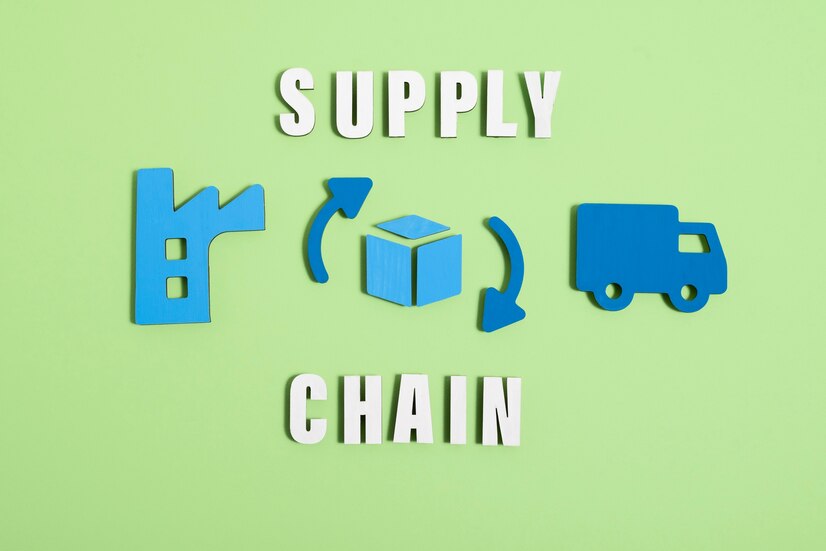Boosting Resilience: D-Chiro-Inositol In Supply Chains
In today’s volatile business landscape, supply chain resilience is paramount. Businesses face an array of challenges, from natural disasters to global crises, highlighting the need for innovative solutions. Enter D-Chiro-Inositol (DCI), a naturally occurring compound with potential applications in supply chain management.DCI, initially known for its physiological effects, has recently gained attention for its capacity to enhance resilience within supply chains. With its multifaceted properties, including antioxidant effects and potential in optimizing resource allocation, DCI offers a promising avenue for fortifying supply chain operations.This blog explores the intersection of supply chain management and DCI, uncovering its benefits, applications, and implications. From mitigating disruptions to fostering sustainability, we delve into the potential of DCI to shape a more resilient future in global commerce. Join us as we embark on a journey to unlock the innovative potential of D-Chiro-Inositol in enhancing supply chain resilience.Understanding DCI’s Potential
Diving into the complexities of D-Chiro-Inositol (DCI) reveals a compound with remarkable potential to revolutionize supply chain resilience. Beyond its conventional applications in metabolic pathways, DCI’s emerging role in supply chain management presents an intriguing opportunity for businesses to fortify their operational frameworks. By comprehensively understanding DCI’s physiological effects and its interactions within the intricate network of supply chains, organizations can unlock new avenues for enhancing resilience and adaptability. This understanding serves as a foundation for leveraging DCI’s properties strategically, ensuring that its integration aligns seamlessly with broader organizational objectives and operational needs.Supply Chain Resilience Challenges
Navigating the contemporary landscape of supply chain management entails confronting a multitude of challenges that test the resilience of businesses worldwide. From disruptions caused by natural disasters to the unprecedented impacts of global pandemics, supply chains face a relentless barrage of obstacles that demand innovative solutions. These challenges underscore the critical importance of enhancing resilience within supply chains, prompting organizations to reassess their strategies and embrace a proactive approach to risk management. By recognizing and addressing these challenges head-on, businesses can position themselves to weather storms and emerge stronger and more resilient in the face of adversity.Importance of Innovation
At the heart of supply chain resilience lies the imperative for innovation—a driving force that propels businesses forward amidst uncertainty and volatility. Embracing innovation enables organizations to challenge the status quo, explore new possibilities, and adapt to evolving market dynamics. In the context of supply chain management, innovation manifests in various forms, from the adoption of cutting-edge technologies to the implementation of novel strategies and methodologies.By fostering a culture of innovation and embracing a mindset of continuous improvement, businesses can cultivate resilience as a core competency, positioning themselves for sustained success in an ever-changing environment.Leveraging Natural Solutions
Leveraging natural solutions in supply chain management presents a compelling opportunity for businesses to enhance resilience and sustainability while minimizing environmental impact. By integrating natural solutions such as plant-based materials, renewable energy sources, and bio-based technologies into supply chain strategies, organizations can optimize operations and reduce reliance on traditional, resource-intensive methods. These natural solutions offer a range of benefits, including:- Reduced carbon footprint: Natural solutions often have lower carbon emissions compared to their synthetic counterparts, contributing to overall environmental sustainability.
- Enhanced resource efficiency: Utilizing renewable resources and sustainable practices helps conserve finite resources and promotes efficient use of materials.
- Improved brand reputation: Embracing natural solutions demonstrates a commitment to environmental stewardship, enhancing brand image and attracting eco-conscious consumers.
- Regulatory compliance: Many natural solutions align with environmental regulations and standards, reducing the risk of non-compliance and associated penalties.
- Long-term cost savings: While initial investment in natural solutions may require upfront costs, the potential for long-term savings through reduced energy consumption and waste management expenses can be significant.
DCI’s Multifaceted Properties
Beyond its well-documented physiological effects, D-Chiro-Inositol (DCI) exhibits a myriad of properties that make it an invaluable asset in supply chain management. Its versatility stems from its ability to modulate various metabolic pathways, regulate cellular functions, and exert antioxidant effects. In the context of supply chains, these multifaceted properties offer a range of benefits, from enhancing resilience to optimizing performance and promoting sustainability. By understanding and harnessing the diverse capabilities of DCI, businesses can unlock new opportunities for innovation and differentiation in an increasingly competitive landscape.Antioxidant Effects Explored


- Cellular protection: DCI acts as a potent antioxidant, scavenging free radicals and protecting cellular structures from oxidative damage, thereby enhancing the resilience of supply chain infrastructure.
- Preservation of product integrity: By minimizing oxidative stress, DCI helps preserve the quality and shelf-life of products throughout the supply chain, reducing the risk of spoilage and ensuring customer satisfaction.
- Maintenance of equipment functionality: Antioxidant properties of DCI extend to equipment and machinery used in supply chain operations, reducing the likelihood of corrosion and malfunction due to oxidative stress.
- Environmental sustainability: Utilizing DCI as an antioxidant aligns with sustainability initiatives by reducing the need for synthetic antioxidants, which may have environmental consequences, thus promoting a more eco-friendly supply chain.
Optimization Through DCI
Incorporating D-Chiro-Inositol (DCI) into supply chain strategies presents opportunities for optimization and efficiency improvements across various operational domains. From inventory management to production processes and logistics, DCI offers insights and interventions that enhance resource utilization, streamline workflows, and minimize waste. By optimizing supply chain operations through the strategic integration of DCI, businesses can achieve cost savings, improve competitiveness, and enhance overall resilience. Leveraging DCI as a catalyst for optimization empowers organizations to adapt to changing market conditions, meet evolving customer demands, and thrive in dynamic business environments.Mitigating Disruptions Strategically
Mitigating disruptions strategically within supply chain management involves proactive planning and implementation of measures to minimize the impact of unforeseen events on operations. By adopting a strategic approach, businesses can identify potential risks, develop contingency plans, and establish resilience frameworks to maintain continuity and minimize disruptions. Key strategies for mitigating disruptions strategically include:- Risk assessment and analysis: Conducting comprehensive risk assessments allows businesses to identify potential threats and vulnerabilities within their supply chains, enabling them to prioritize mitigation efforts effectively.
- Diversification of suppliers and partners: Building a robust network of suppliers and partners across multiple regions reduces dependency on a single source and enhances flexibility to navigate disruptions.
- Implementation of technology-enabled solutions: Leveraging technology such as supply chain visibility platforms, predictive analytics, and real-time monitoring systems provides greater visibility and agility in responding to disruptions.
- Collaboration and communication: Establishing open lines of communication and collaboration with stakeholders, including suppliers, customers, and logistics partners, facilitates rapid response and coordination during times of crisis.
Fostering Sustainability Initiatives
The adoption of D-Chiro-Inositol (DCI) in supply chain management not only enhances resilience but also contributes to sustainability initiatives. As businesses strive to minimize their environmental footprint and promote responsible practices, DCI offers a natural and eco-friendly solution for optimizing operations and achieving long-term sustainability goals. By reducing reliance on synthetic alternatives and minimizing environmental impact, DCI supports efforts to create more sustainable supply chains. Furthermore, by aligning supply chain practices with sustainability objectives, businesses can enhance brand reputation, attract environmentally conscious consumers, and drive positive social and environmental outcomes.Future Outlook: DCI Integration
The future outlook for integrating D-Chiro-Inositol (DCI) into supply chain management is promising, with opportunities for transformative impact on resilience, efficiency, and sustainability. As businesses continue to prioritize these key factors, DCI integration is poised to play a pivotal role in shaping the future of global commerce. Key aspects of the future outlook for DCI integration include:- Technological advancements: Ongoing advancements in research and technology are expected to deepen our understanding of DCI’s properties and applications, unlocking new possibilities for enhancing supply chain resilience and efficiency.
- Regulatory support: Growing recognition of the importance of sustainability and environmental stewardship is likely to drive regulatory support for DCI integration, encouraging businesses to adopt eco-friendly practices.
- Industry collaboration: Collaboration between industry stakeholders, including suppliers, manufacturers, and logistics partners, will facilitate the seamless integration of DCI into supply chain processes, fostering innovation and driving collective progress.
- Market demand: Increasing consumer awareness and demand for sustainable products and practices will incentivize businesses to prioritize DCI integration as part of their commitment to corporate social responsibility and environmental sustainability.
